Lavender Oil For Hair – How To Use, Benefits, & Side Effects
Learn how to indulge yourself in the soothing aroma of this essential oil.
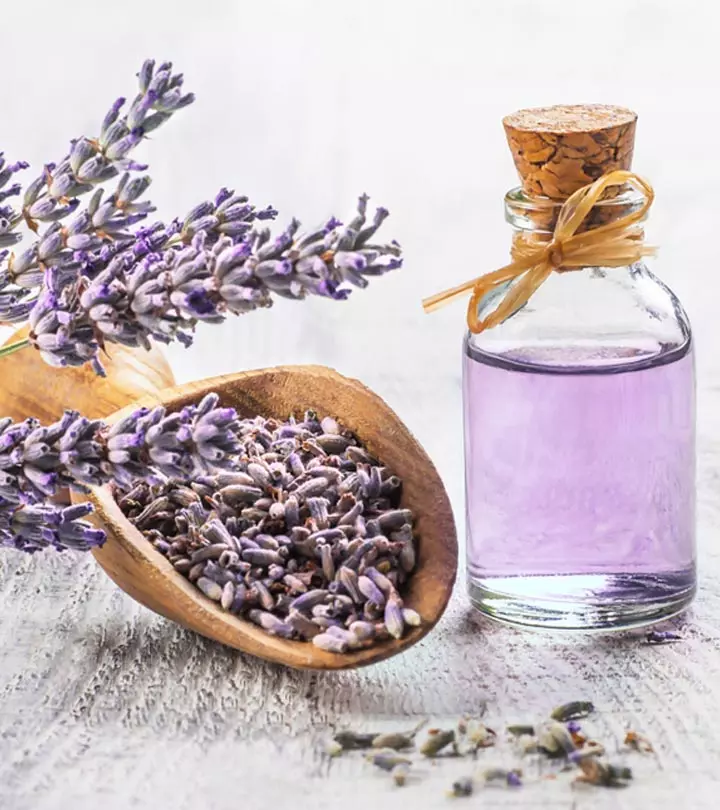
Image: Shutterstock
Lavender oil is obtained by the distillation of lavender flowers and lavender spikes. The oil obtained from the flowers is colorless, has a soothing aroma, and contains a complex mix of phytochemicals. Lavender oil has multiple uses, from aromatherapy and body massage to skin and hair care. It is suitable for all hair types and textures. Hair experts also attest to the fact that it is one of the best oils for natural hair.
 Know Your Ingredient: Lavender Oil
Know Your Ingredient: Lavender OilWhat Is It?
It is the oil obtained from the distillation of lavender flowers and spikes.
What Are Its Benefits?
Maintains scalp health, promotes hair growth, boosts blood circulation, kills head lice, and boosts healthy hair growth.
Who Can Use It?
Suitable for all hair types (especially those with thin hair or scalp issues) and skin types (especially those with dry skin issues)
How Often?
Apply it to your scalp once per week.
Caution
Dilute the oil with a carrier oil or water or liquid like rose water or cucumber juice, as it may irritate your scalp. Those with oily scalps should use it moderately.
In This Article
What Is Lavender Oil?
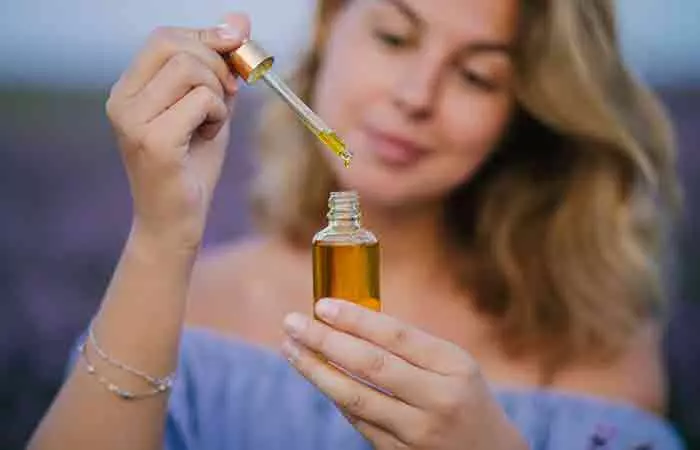
Lavender oil is obtained by the distillation of lavender flowers and lavender spikes. The oil obtained from the flowers is colorless, has a soothing aroma, and contains a complex mix of phytochemicalsi Bioactive chemical compounds in plants responsible for their color and aroma that protect them from predators and the environment. . Lavender oil is used as a perfume, in aromatherapy, and for massages.
 Trivia
TriviaWhat is the relation between lavender oil and hair growth? Scroll down for a list of reasons lavender oil is good for your hair.
Key Takeaways
- The topical application of lavender oil increases the number of hair follicles and stimulates hair growth.
- It has antimicrobial properties, which combat many scalp infections and dandruff.
- It can be used as a serum or added to hair masks, shampoo, or conditioner.
How Lavender Oil Works For Hair Growth

- Promotes Hair Growth: Korean scientists found that the topical application of lavender oil once a day for four weeks increased the number of follicles and stimulated hair growth in laboratory mice (1). However, more studies on humans are required to understand why and how lavender oil promotes hair growth.
- Improves Blood Circulation: Applying lavender oil to the scalp and gently massaging it in a circular motion helps improve blood circulation to the scalp. This improves scalp health and helps the nutrients reach the follicles, making them stronger, and preventing hair loss.
- Kills Head Lice: Head lice are a menace. The parasites feed on the blood on the scalp and weaken the hair, leading to hair fall and dull hair. A study shows that applying a combination of lavender oil and tea tree oil for lice is very effective. It can prevent or even suffocate head lice (2).
- Has Antimicrobial Properties: Lavender oil has antimicrobial properties and is effective against bacteria and fungi (3). This property of lavender oil may help reduce itchy scalp, dandruff, and other infections caused by microbes on the scalp.
- Has A Calming Effect: Sudden hair loss, hair thinning, and bald patches can cause stress and anxiety. This can further aggravate hair fall. Lavender oil has a calming effect that helps reduce anxiety (4). Hence, applying it to your scalp helps relax your mind and provides stress relief.
According to a YouGov poll of 32,601 US Adults, the majority of men (59%) and women (57%) in the age group of 18 to 24 express fear when confronted with the prospect of going bald. Similarly, among individuals aged 25 to 34, a significant portion of women (55%) and approximately half of the men (51%) also share the sentiment that a receding hairline or thinning hair is a frightening prospect.
Naya Nzeka, a beauty and haircare content creator, tried using lavender oil on her hair for 14 days and saw visible changes in her hair growth. By the end of the 14th day, her texture improved and her hair grew one and a half inches long. In her video, she mentioned, “Lavender is a very effective hair growth treatment. I definitely have to incorporate this into my hair care regime (i).”
Now, what may be the best way to apply this hair growth oil? Scroll down to know the different options.
How To Use Lavender Oil On Your Hair

- Massage Lavender Oil: Comb your hair and divide it into sections. Massage two drops of lavender oil onto one section in a circular motion for 2 minutes to help the oil penetrate the deepest dermal layer of the scalp and hair follicles. Repeat the process all over the scalp. Take 10 drops of lavender oil in your palms and run them through the hair strands. Tie your hair up in a bun. Wait for 30 minutes before washing it off your hair with a good shampoo.
- Use Lavender Oil As A Serum: The beautiful aroma of lavender oil will add a calming effect, make your hair shiny, and prevent the need for perfume.
- Add Lavender Oil In Hair Products: Adding a few drops of lavender oil to your shampoo, conditioner, hair oil, or hair serum can help you reap its benefits without having to spend a lot of time on hair care every day.
- Buy Products With Lavender Oil: Check the labels of shampoos, conditioners, oils, and serums for ingredients like lavender essential oil or lavender hydrolatei The aromatic water left behind from condensation during the steam distillation process of an essential oil. . You can buy these products and use them to avoid the extra step of adding lavender oil to your hair care products.
- Lavender Oil In Hair Masks: You can mix a few natural ingredients like coconut oil or almond oil along with lavender oil to prepare a deep conditioning hair mask for dry and damaged hair. Apply it to the scalp and hair strands and massage well. Wash off after 30 minutes. Do this once a week.
 Quick Tip
Quick TipWhat are the benefits of using lavender oil for hair? Find out in the next section.
Benefits Of Using Lavender Oil

- Helps promote hair regrowth.
- Rejuvenates damaged and dull hair.
- Suitable for all hair types.
- Helps reduce dandruff and head lice.
- Helps to relax and calms the nerves.
- Can easily be mixed with other oils and hair care products.
- Can also be used for body massage.
- Easily available.
But before you start using it, should you be aware of any side effects lavender oil may have? Scroll down to know.
Are There Any Side Effects?

Using too much lavender oil may irritate your scalp or skin. Do a patch test before you use the oil on your hair to check for allergic reactions or irritation, especially if you have a sensitive skin type. There are proven benefits of scalp massage for hair growth. Massage your scalp with a minimum amount of the oil. Mixing lavender oil in a carrier oil like coconut oil or almond oil can also help. If the aroma is too strong for you, you may dilute it with olive oil before applying it to your scalp. Do not consume it under any circumstances, and keep it away from children and pets. Additionally, make sure the oil does not come in contact with your eyes. If you experience any sort of irritation, immediately rinse the area with water and stop using the oil.
Infographic: How To Make Lavender Oil At Home
Now that you know the benefits of using lavender oil for your hair, you may want to get some for yourself. While you can choose to purchase the best quality lavender oil, making it at home would ensure you get the best of quality at a much lesser price. Check out the infographic below to know how you can make lavender oil at home from fresh sprigs and dried flowers. Illustration: StyleCraze Design Team
Using lavender oil for hair is one of the best ways to promote hair growth and increase its volume. Treating your scalp with this oil is a great natural solution for hair loss prevention. It has antimicrobial properties, kills lice, improves hair texture, boosts blood circulation, and soothes your scalp. You can use lavender oil as a massage oil or serum, add it to your hair care products, hair masks, or buy products with lavender oil for hair conditioning. Though it suits all hair types, you must know its side effects. Excess use of lavender oil can irritate your scalp. So, always do a patch test before applying it for the first time.
Frequently Asked Questions
Does lavender oil darken hair?
Yes, lavender oil helps darken the hair. If applied regularly, it can improve hair color and texture.
Is lavender oil good for colored hair?
Yes, lavender oil is good for colored hair. It helps manage the dryness and frizz associated with colored hair.
How often should I use lavender oil on my hair?
You can use lavender oil daily or weekly as per your requirements. If you have damaged hair, applying it overnight daily can help bring back its shine. You can also use it as a serum daily or in a hair mask once a week.
How long does it take to see results from using lavender oil on hair?
It can take anywhere between 1-3 months before you start experiencing a change in your hair texture, appearance, and growth rate (1).
Illustration: Lavender Oil For Hair – How To Use Benefits & Side Effects
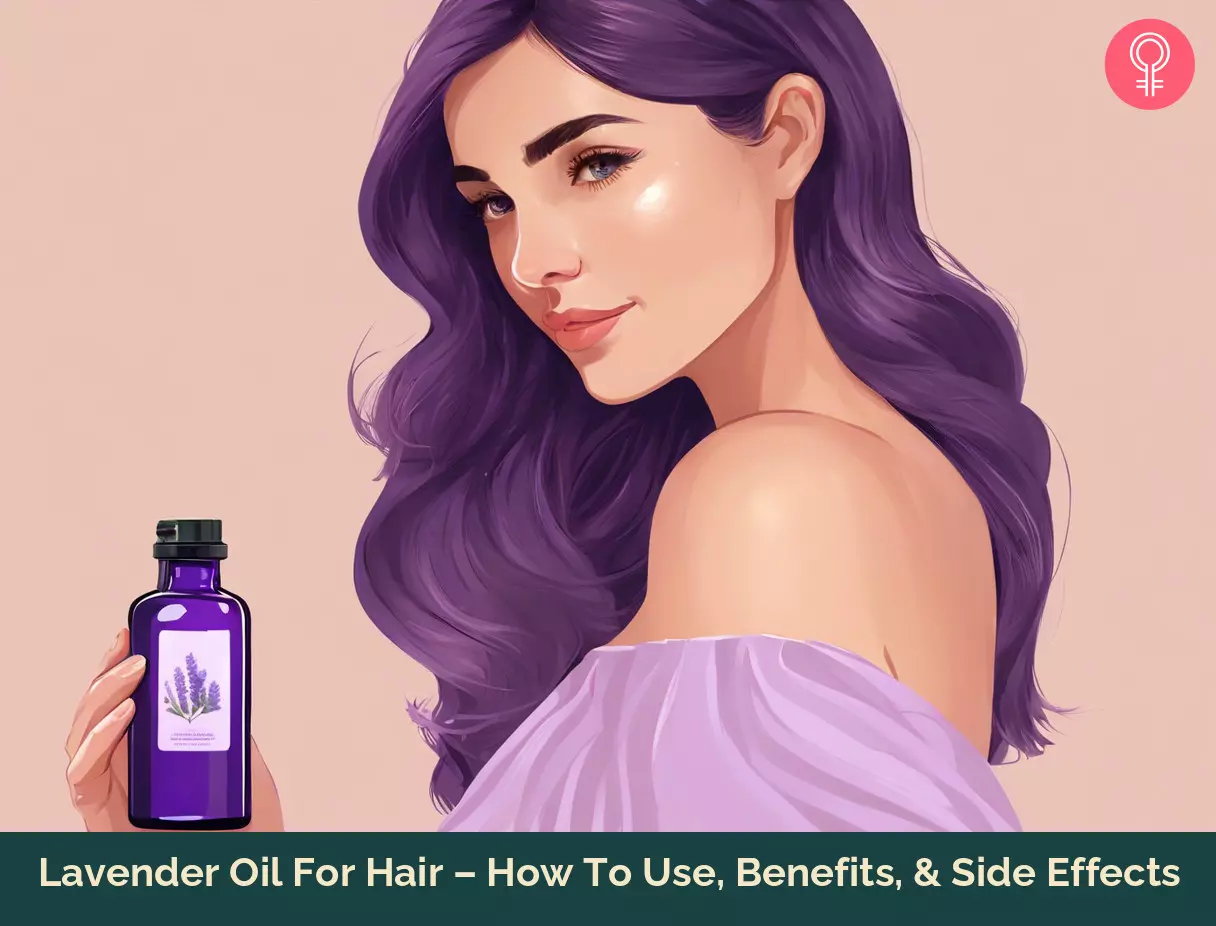
Image: Stable Diffusion/StyleCraze Design Team
How effective is lavender oil for hair growth? Watch this video that explores the science behind it to confirm if it can really help your hair health.
Personal Experience: Source
StyleCraze's articles are interwoven with authentic personal narratives that provide depth and resonance to our content. Below are the sources of the personal accounts referenced in this article.
i. This Is What Lavender Did To My Hair I Tried Lavender On My Hair Everyday For 2 Weekshttps://www.youtube.com/watch?v=gtvtQF-r4-M
References
Articles on StyleCraze are backed by verified information from peer-reviewed and academic research papers, reputed organizations, research institutions, and medical associations to ensure accuracy and relevance. Read our editorial policy to learn more.
- Hair Growth-Promoting Effects of Lavender Oil in C57BL/6 Mice
https://www.ncbi.nlm.nih.gov/pmc/articles/PMC4843973/ - An ex vivo, assessor blind, randomised, parallel group, comparative efficacy trial of the ovicidal activity of three pediculicides after a single application – melaleuca oil and lavender oil, eucalyptus oil and lemon tea tree oil, and a “suffocation” pediculicide
https://bmcdermatol.biomedcentral.com/articles/10.1186/1471-5945-11-14 - Antimicrobial Properties of Plant Essential Oils against Human Pathogens and Their Mode of Action: An Updated Review
https://www.ncbi.nlm.nih.gov/pmc/articles/PMC5206475/ - Essential oil of lavender in anxiety disorders: Ready for prime time?
https://www.ncbi.nlm.nih.gov/pmc/articles/PMC6007527/
Read full bio of Dr. Shruti Chavan
Read full bio of Arshiya Syeda
Read full bio of Ramona Sinha
Read full bio of Medha Deb






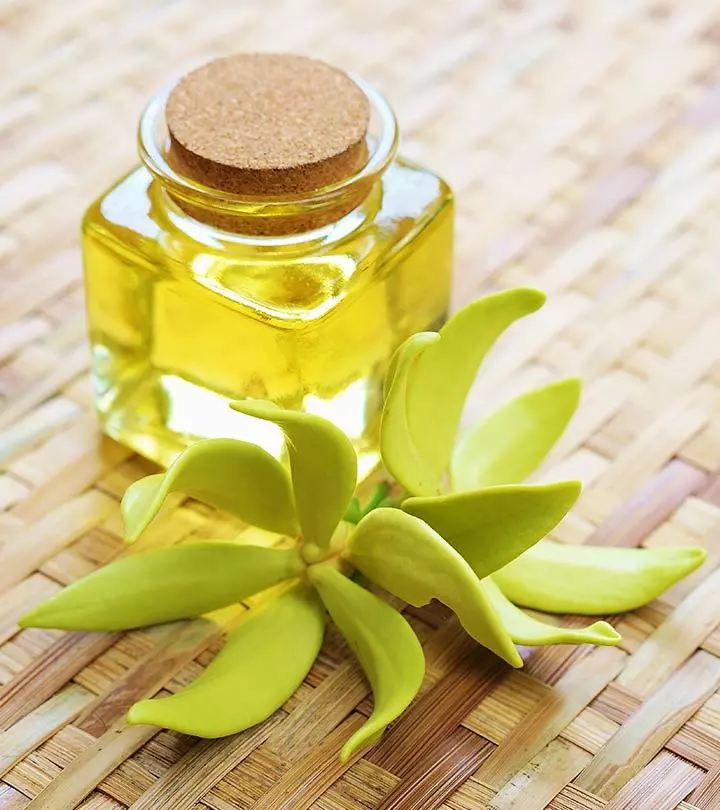
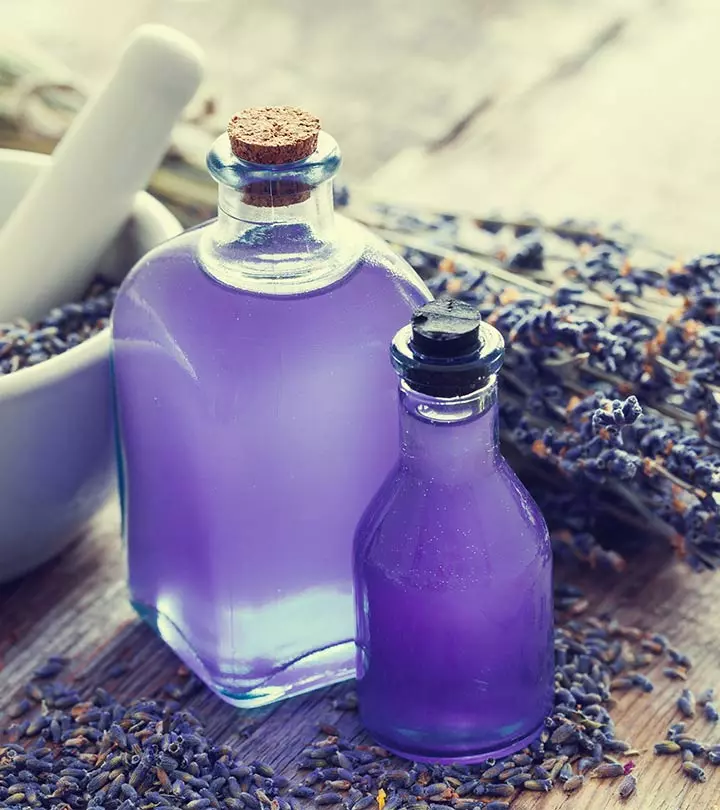
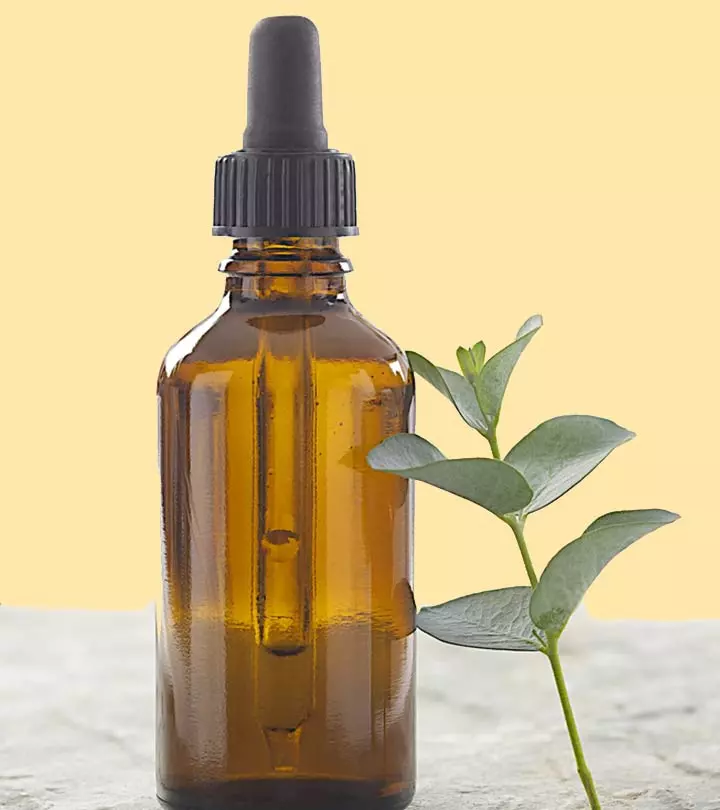
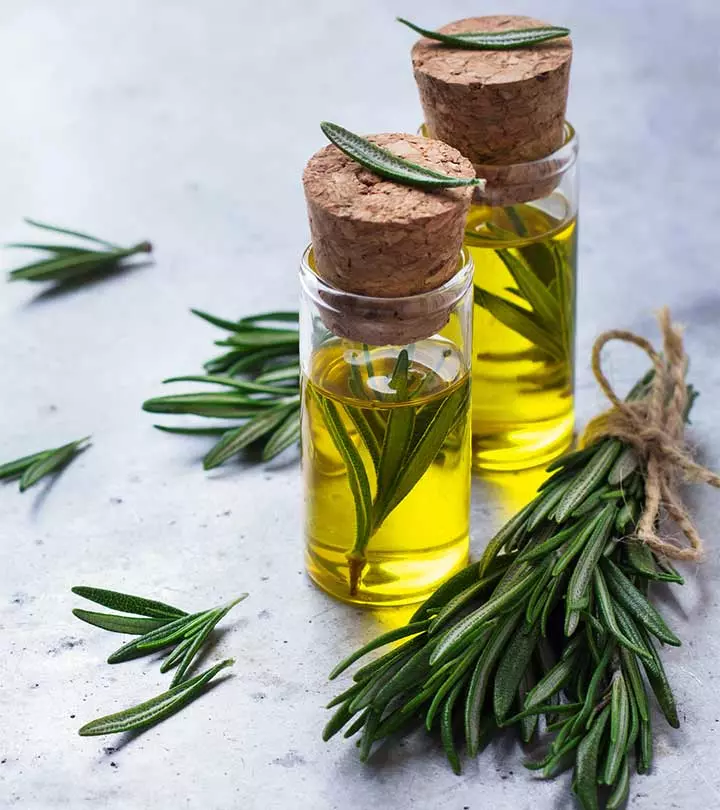
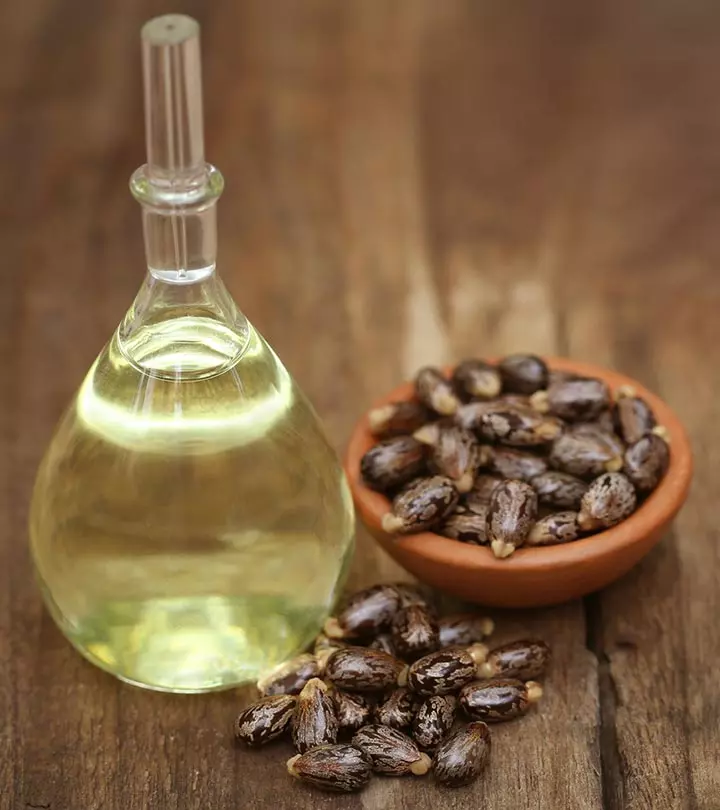
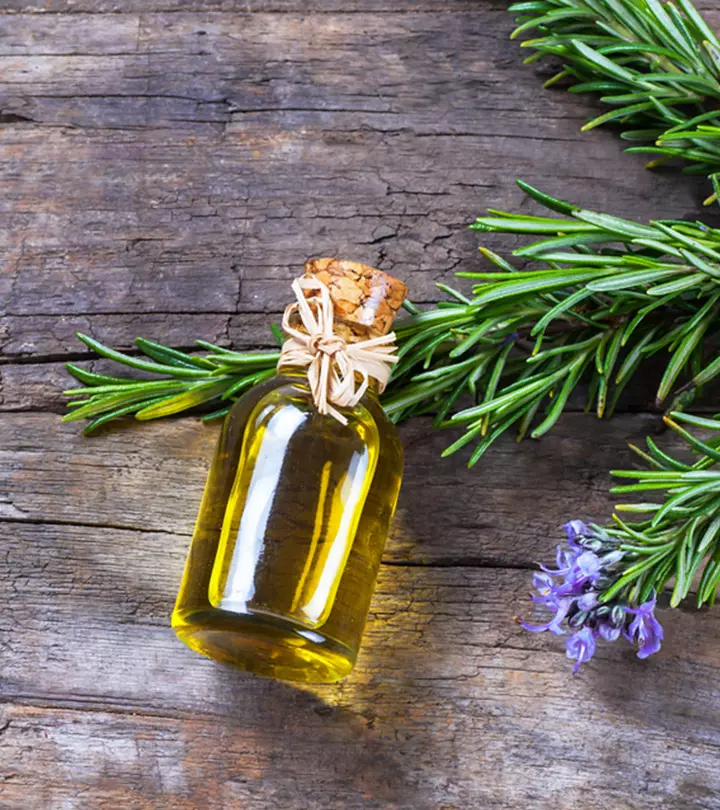
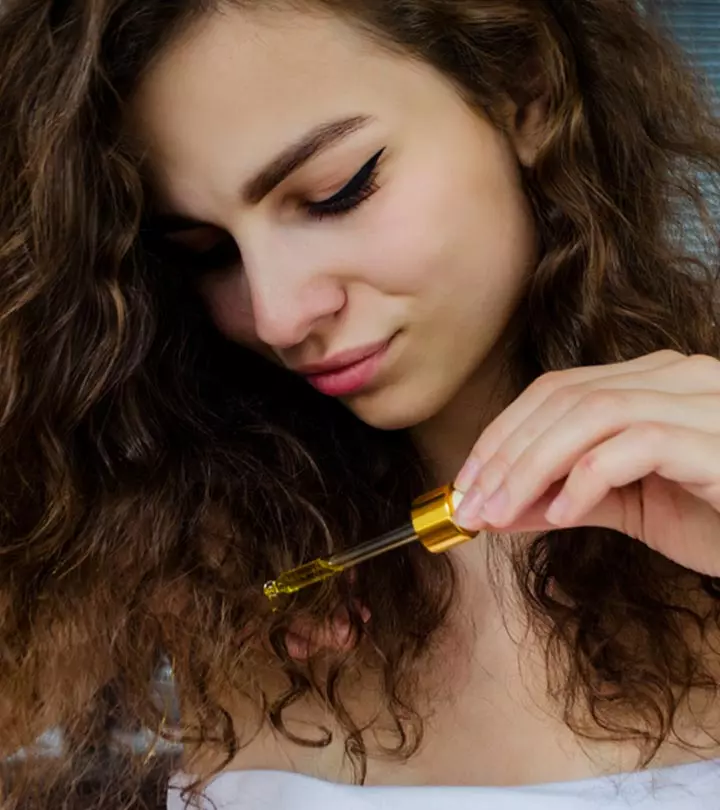
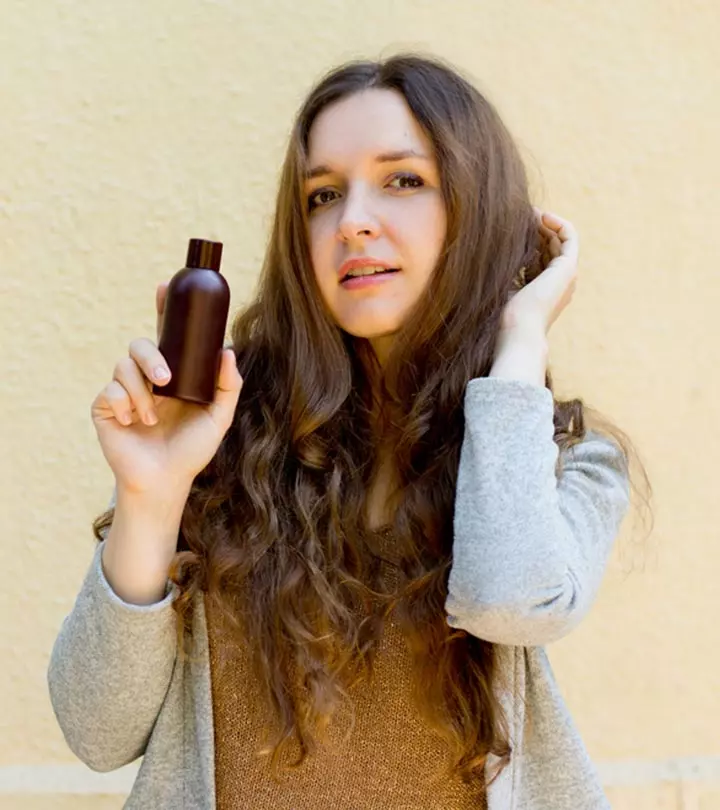
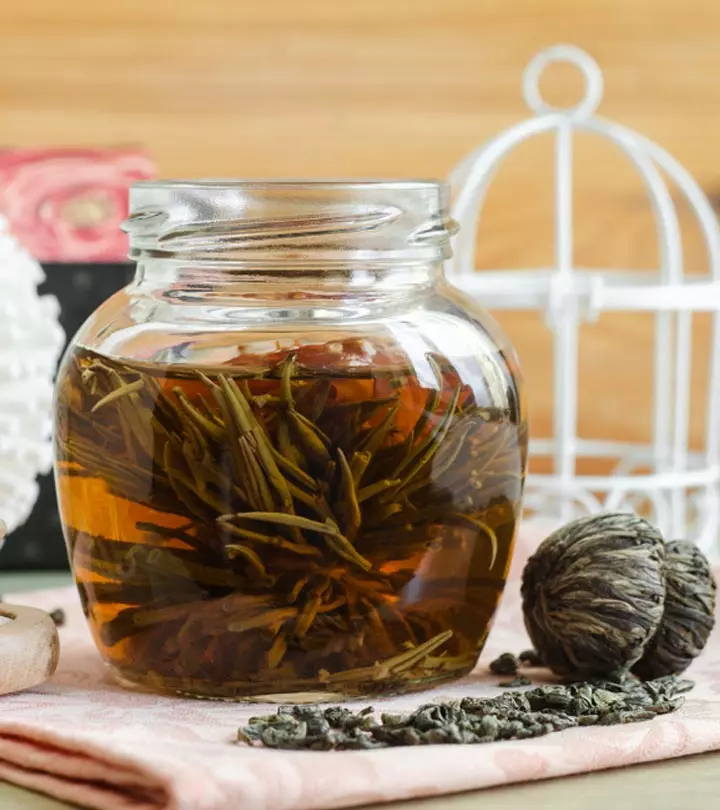
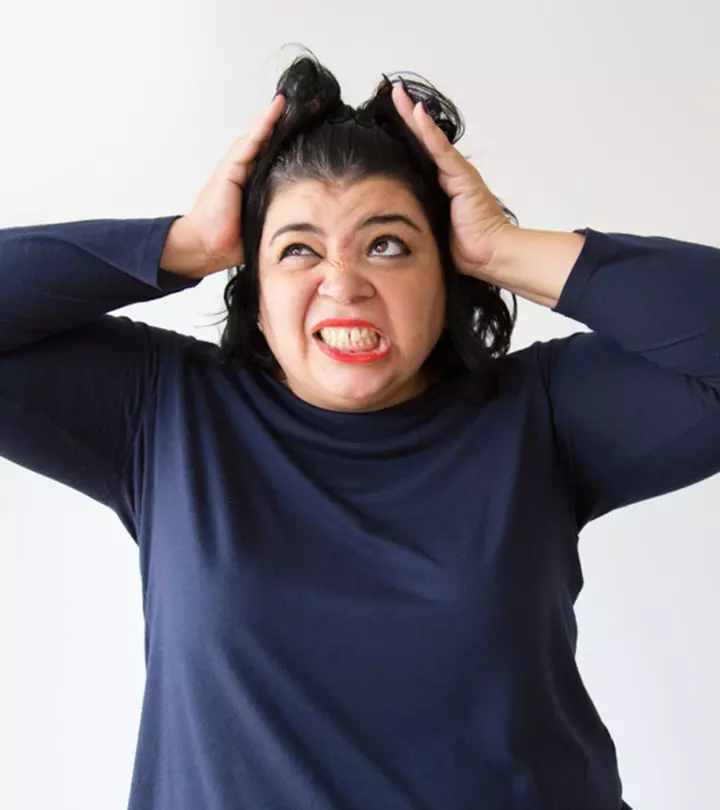
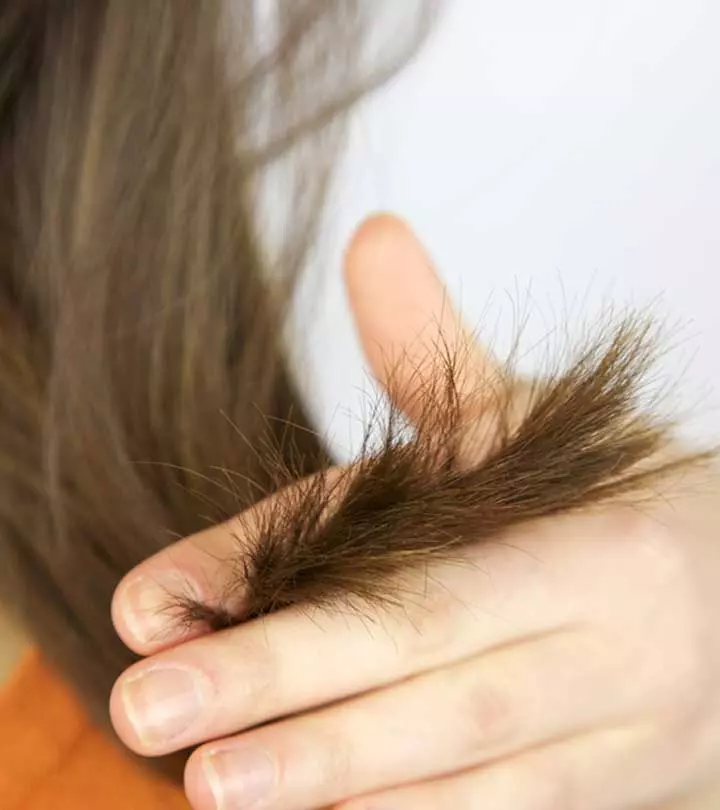

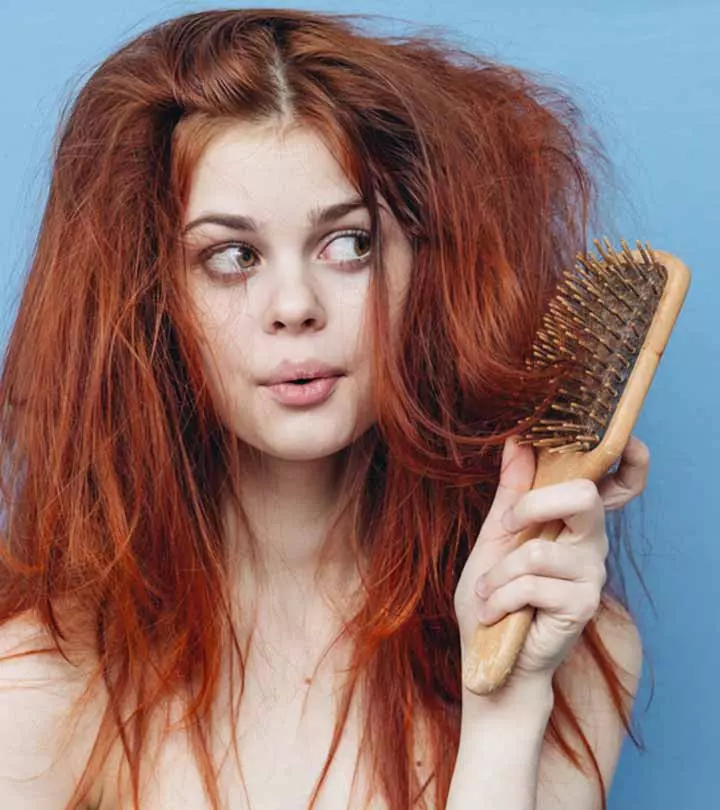
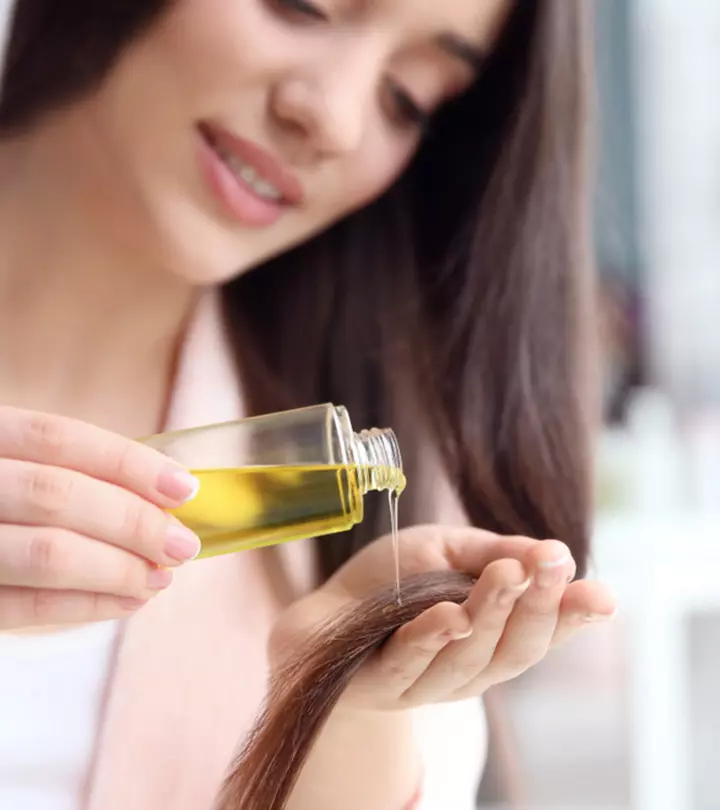

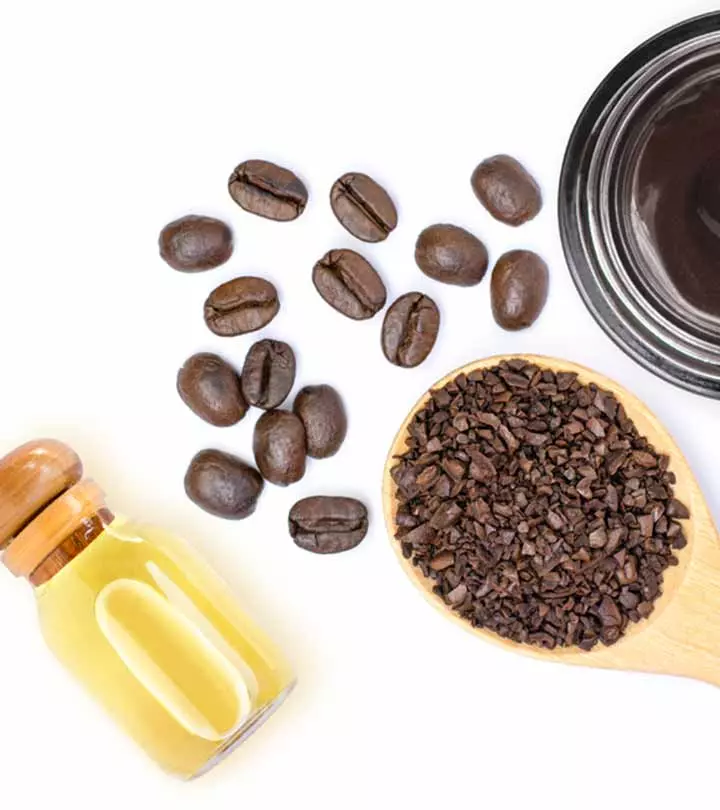
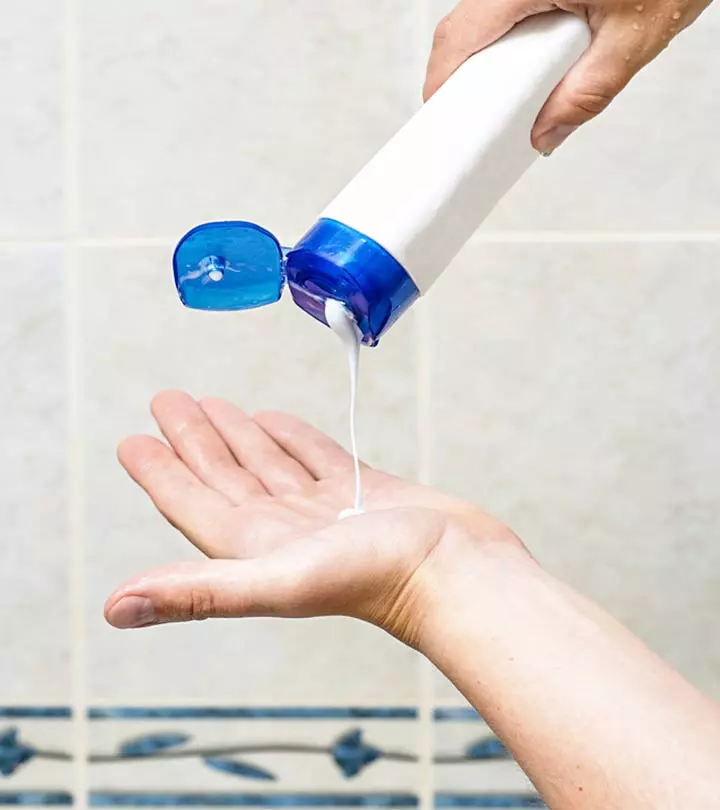
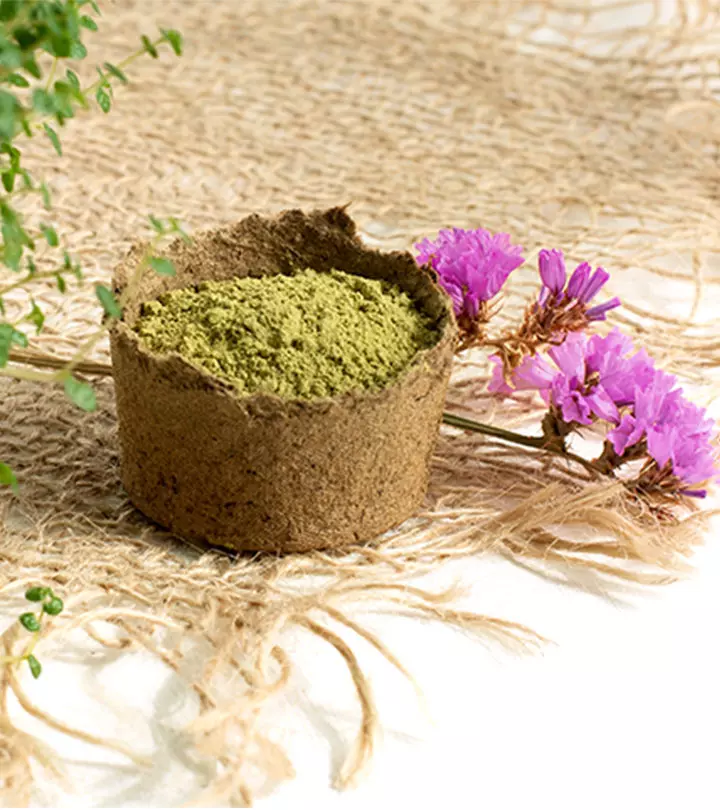
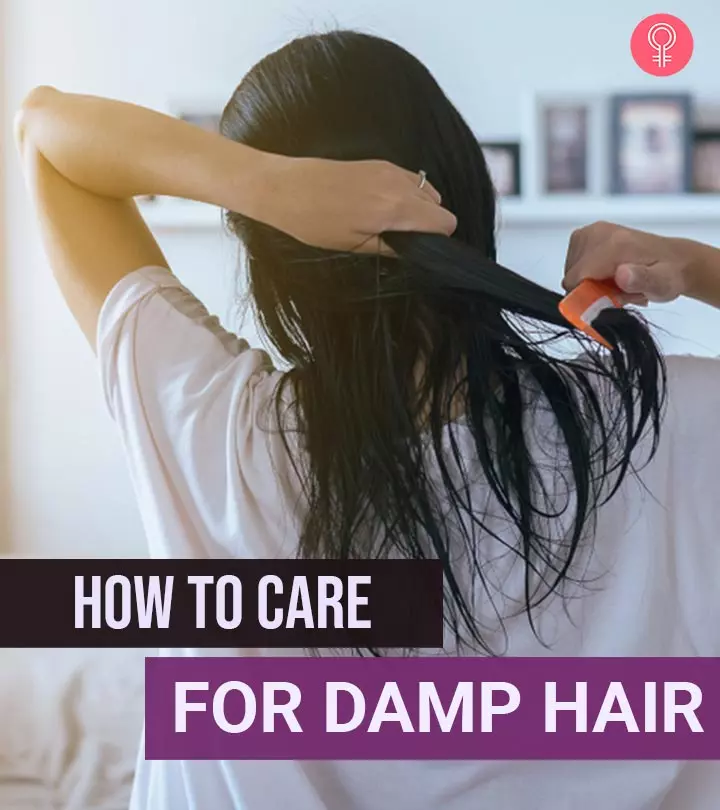
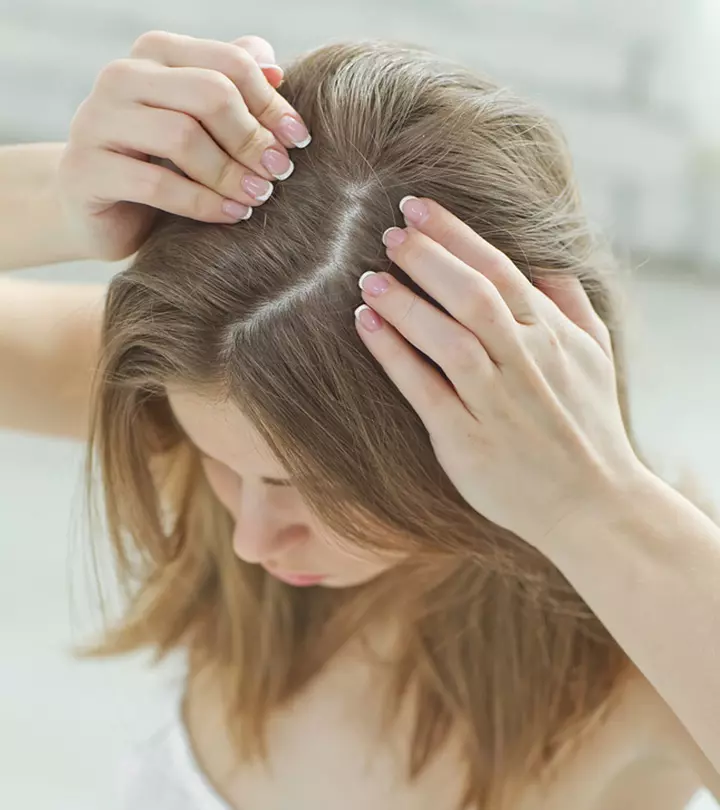

Community Experiences
Join the conversation and become a part of our empowering community! Share your stories, experiences, and insights to connect with other beauty, lifestyle, and health enthusiasts.